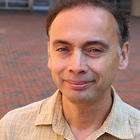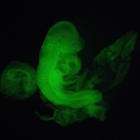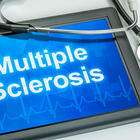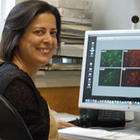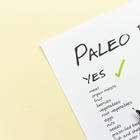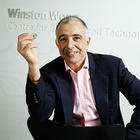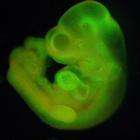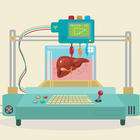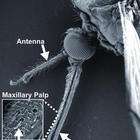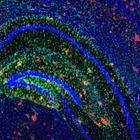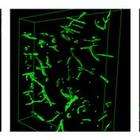FREE Email Newsletter Bioscience Technology Daily
One for the Aged
July 15, 2024 2:32 pm | by Skip Derra | CommentsWhat we currently know about aging is not highly specific; our cells divide many times throughout our lives and eventually cause organs and our bodies to age, break down and fail. New research, however, suggests that how we age might depend on cellular interactions that we inherit from our ancestors, accumulating throughout many generations.
As STAP Papers are Retracted, A Riken Researcher Mulls Stalling World-First Trial
July 2, 2024 2:55 pm | by Cynthia Fox | CommentsJust as Nature was setting about retracting two famous Riken CDB papers claiming to make “STAP” stem cells from ordinary cells, another Riken researcher said she might suspend a world-first clinical trial of a competing—legitimate—stem cell technique. But within hours, she modified her views, according to Riken.
Stem Cells Halt MS for Two Years
July 1, 2024 12:07 pm | by Cynthia Fox | CommentsAt 21, MS had Jennifer Molson “wheelchair bound.” But since her stem cell transplant, she has worked, driven, danced at her own wedding. The story had a room of 1,000 professional stem cell scientists sniffling loudly at the International Society for Stem Cell Research (ISSCR) meeting—said sniffling reaching a crescendo when the quiet, pretty Molson concluded: “I’m living proof stem cells can save lives.”
One Japan Stem Cell Institute Soars, One Struggles
June 18, 2024 12:59 pm | by Cynthia Fox | CommentsAs Nobel Prize-winning scientist Shinya Yamanaka regaled a New York crowd with advances that may send his Japanese institute to the top of the global stem cell field, investigators in Tokyo said the stem cell division at his sister institute is so wracked with problems it should dismantle—or dramatically revamp.
ASCO Recap: Leaning in at the Plate, Swinging for the Fences
June 17, 2024 1:57 pm | by Neil Canavan | CommentsEveryone loves a grand slam: the crack of the bat, the arc of the ball as it sails over the fence, a tip of the batter’s cap, a triumphal trot around as the bases empty out, but really, it’s the lesser efforts that made it all possible—a double, a single, a walk—it’s the incremental gains that win the game. It’s called Small Ball. This year’s ASCO, absent the heavy hitters, was all about the small ball.
ASCO Sessions Feel Funding Impact
June 13, 2024 2:49 pm | by Neil Canavan | CommentsFederal funding for cancer research has diminished over the last ten years, and the negative impact on research is now apparent. There were no blockbuster revelations, no flashy new kid on the block, no miracle cures at this year’s ASCO. Of the four studies selected for the plenary session (where presentations are often THE important findings of the conference), only one is predicted to have a major impact on patient care.
Obesity Research Takes Aim at Protein Regulators
June 6, 2024 9:00 am | by Skip Derra | CommentsYou are what you eat, but researchers are beginning to realize that what and when you eat is controlled by a myriad of underlying biological triggers acting in concert.
‘Paleo Diet’ May Not Suppress Hunger
June 5, 2024 2:25 pm | by Cynthia Fox | CommentsThe popular “Paleo diet,” oft described as an ancient diet dominated by grasses and modeled after diets from the Paleolithic period, may not quell hunger better than the modern “McDonald’s” diet.
One Chip, One Dream: The Pursuit of a DNA-powered Lab-on-a-chip
June 4, 2024 1:38 pm | by Christina Jakubowski, Managing Editor | CommentsChristofer Toumazou believes he can change the world with his “one chip, one bug – one chip, one drug,” slogan. Nominated for the European Patent Office’s 2014 European Inventor award, he holds a patent for the technology behind a microchip that can analyze DNA within 30 minutes and without a laboratory.
Cloner Finds New “Acid Bath” Paper Errors; Scientist OKs Retraction
May 29, 2024 2:14 pm | by Cynthia Fox | CommentsRiken Institute stem cell scientist Haruko Obokata told the Japanese press she would retract the second of her two controversial Nature papers claiming cells can be dedifferentiated to a stem cell state just by stressing them with acid.
Mixed Signals
May 27, 2024 1:42 pm | by Skip Derra | CommentsThe intimate interaction between a plant and its environment has sent some puzzling cues to scientists trying to determine how, at the molecular level, a plant becomes infected by bacteria. At this level, researchers have found that plants sometimes beckon the bacteria in a seemingly counterintuitive action to its health.
Printing Replacements
May 22, 2024 1:44 pm | by Robert Fee, Editor-in-Chief, Bioscience Technology | Comments3-D printing promises to revolutionize engineering, and many speculate that it could have a huge impact on medicine, too. Many speculate that useful organs grown in the lab three-dimensionally on scaffolds is now closer to fact than fiction.
Blood Seeking Mosquitoes
May 15, 2024 12:41 pm | by Skip Derra | CommentsInsights into controlling mosquitoes often focuses on how they are attracted to humans, which is by smelling the carbon dioxide we exhale. But once they get close to us, mosquitos often steer toward exposed areas of skin such as ankles and feet. New research has shown that an often overlooked mosquito organ, the maxillary palp, plays an important role in mosquito targeting.
Anti-Depressant Reduces Alzheimer’s Plaque Growth by 78 Percent
May 14, 2024 2:03 pm | by Cynthia Fox | CommentsA common antidepressant can dramatically halt growth of Alzheimer’s plaque. A team from Missouri and Pennsylvania report today in Science Translational Medicine this reduction occurs in both humans and mice. It gives the drug, the selective serotonin reuptake inhibitor (SSRI) citalopram, a possible future role as a prophylactic—the first in Alzheimer’s Disease (AD), if bigger studies are supportive.
‘Remarkable’ Therapy Makes Old Mice Young, May Hit Clinic This Year
May 5, 2024 1:05 pm | by Cynthia Fox | CommentsA futuristic anti-aging approach, variously described and utilized by three different Harvard and Stanford groups this week, may hit the clinic by year’s end. The research all began with “heterochronic parabiosis.” That is, old mice were hooked up to young mice via their circulatory systems— and experienced tissue rejuvenation.

